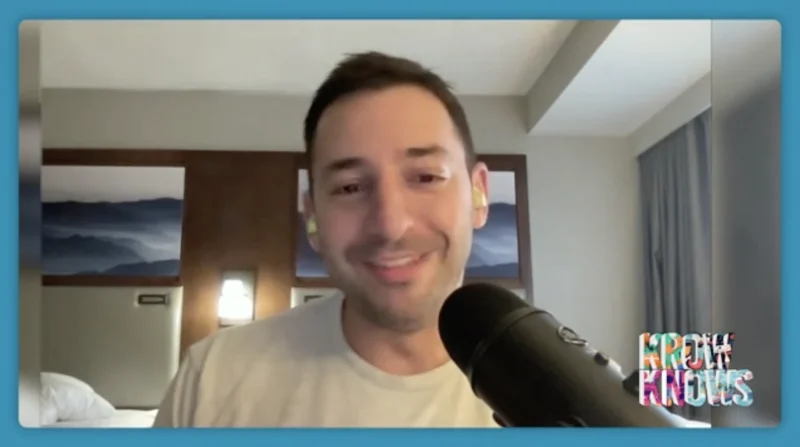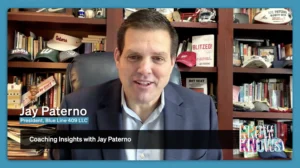What Media Industry Layoffs Tell Us About Advertising, Streaming, & Media Culture
2022 has been a tough year for companies as inflation and high interest rates have made debt spending more expensive and critical supplies more of a burden on profit margins. Unfortunately, thinner margins have been passed off onto employees with mass high-profile layoffs sweeping nearly every industry throughout the year, especially in tech-related sectors. From Peloton’s 20% workforce cut in February, to Bird’s 23% workforce cut in June, to Snapchat’s 20% workforce cut in September, layoffs have consumed the news cycle basically year-round. And now, media industry layoffs are just the most recent iteration of this cost-cutting strategy.
Recent announcements over the last several weeks show the media industry is shedding its workforce in droves.
- CNN announced a workforce cut unseen at the company in almost 10 years with the loss of hundreds of staffers and several prominent on-air contributors including Chris Cillizza and Susan Glasser.
- Gannett began its third round of layoffs in the last six months.
- The Washington Post, which just eliminated the print edition of its Sunday magazine and several staffers’ roles, also announced that it’s priming itself for around a 10% cut of its newsroom workforce in 2023.
- The Associated Press is trying to encourage early retirement for older staffers to trim on labor costs.
Are there unique reasons that are motivating mass media industry layoffs? Or is this an extension of the economic headwinds depressing the U.S. economy? Does the evolution of the media ecosystem with short-form content’s reign and the standardization of the streaming age have anything to do with these workforce losses? Our media industry experts weigh in.
Joanna’s Thoughts
Joanna Massey, Ph.D., former Fortune 500 C-level communications executive, current public board director for KULR Technology Group and the Hollywood Foreign Press Association, sees this round of media industry layoffs as an extension of streaming competition, advertising spend decline, and a trend toward consolidation in the industry.
“First and foremost is advertising spend. These companies are extremely exposed to a down advertising market, and back in September of this year, the advertisers were reading the economic tea leaves and they said, ‘we see a recession coming, we’re pulling back our advertising budgets for 2023. So we’ve seen this coming, and what you’re now seeing with the layoffs is the results of that. It’s the anticipation of a down ad market where the media companies have to lay off. They do it all the time. All the time might be an exaggeration, but they’ve done it before. It’s a cyclical thing. They’ll do it again….
The other thing that is driving the layoffs are competition from streaming services, but that’s been going on for a long time now. The true issue with streaming is that when the legacy media companies meeting the traditional media companies that started in traditional television, in film, when they finally jumped on the bandwagon and said, ‘we need our own streaming services,’ they then were forced to ramp up quickly, and it took a lot of resources and a lot of budget that got allocated to these streaming services. And in my opinion, they probably made projections that were a little too optimistic about how quickly they could get subscribers….
And then the other thing, frankly, that’s impacting the layoffs right now in the media industry is consolidation. Whenever you have consolidation in the media industry, you are going to have layoffs. It has been going on for decades. We saw a lot of it in the 1990s when there was a ton of consolidation after the FinCEN rules got relaxed. We saw more recently when Disney took over FOX, and we’re seeing it now with Discovery acquiring Warner Brothers. So those are the primary reasons behind all of these layoffs right now. It’s cyclical.”
Watch the above video for Joanna’s full thoughts!
Darren’s Thoughts
Darren Campo, adjunct professor at NYU’s Stern School of Business and SVP of programming and content strategy at the Food Network and Cooking Channel with Scripps Network Interactive, puts most of the blame for this layoff trend on long-term pandemic-era challenges, which proved difficult for media houses’ profit and growth.
“2022 has been a very difficult year for media companies to make the case for both growth and profitability. In the face of an advertising recession and potentially a global recession, increased competition, and uncertainty over business models, profitability has gone to the forefront to prove to Wall Street and to buy time. As to what’s ultimately going to work, there may be a clue in what we saw in the partnership between Netflix and Microsoft earlier this year, and that is that big media and big tech may really need each other to survive, thrive, and grow. And that may be something we see a lot more of in the months to come.”
Jacquie’s Thoughts
Jacquie Jordan, CEO of TVGuestpert, former television producer for the Sunday Morning Shootout, and host of “Front and Center with Jacquie Jordan,” sees mass media industry layoffs as a natural consequences of larger issues that are rocking the journalism industry, from debates on the ethical purity of outlets to a shift in media culture.
”It’s not a surprise to me that there’s massive downsizing and layoffs going on in traditional broadcast news. One, journalism right now as a whole is under fire for their ethics and their reporting. It’s being challenged in many places with massive consequences. Also, much of the layoffs that we’re seeing are actually happening in liberal progressive media outlets, while meanwhile places like News Nation, which has more of a conservative bent are actually hiring a lot of the CNN folks that were laid off. So we’re seeing a shift in where the politics of media is going.
The Washington Post is owned by Amazon’s Jeff Bezos. CNN is owned by Time Warner Discovery, and so a lot of these media have served their purpose in the last couple years. Also, what has happened since the pandemic and the shift in the media culture is many of these parent companies have launched their digital streaming services to great success. So the broadcast news are inconsequential at this point in terms of functioning for income for these massive broadcasters.”
Article written by Daniel Litwin.








